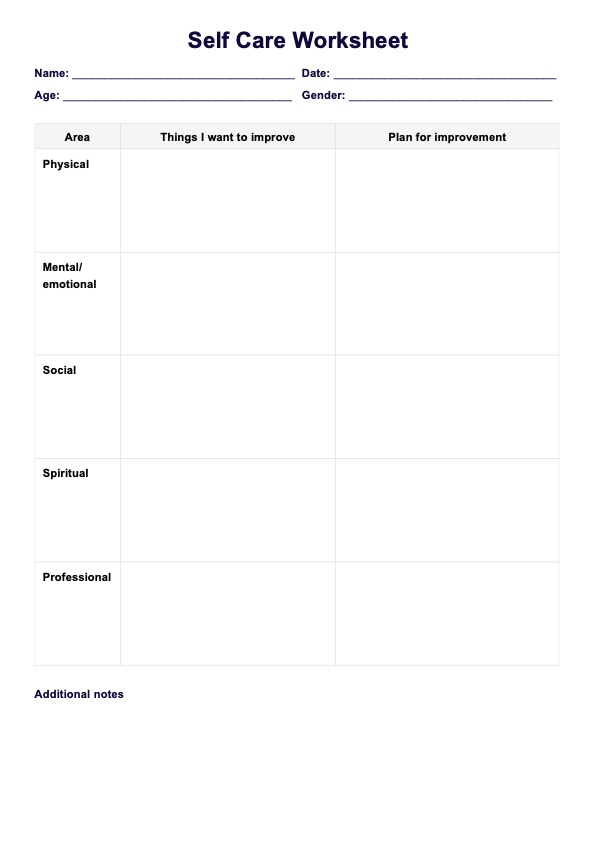It depends. Typically, this worksheet should be completed within 30 minutes. However, allow your clients as much time as they need. It may be more helpful and supportive for them to take this document home and bring it in with them in the next session for discussion.

Self Care Worksheet
Use this Self Care Worksheet to support clients in enhancing their physical, personal, spiritual, psychological, and professional wellness effectively.
Self Care Worksheet Template
Commonly asked questions
Self care is an essential step in generating overall positive well-being. Taking care of the individual at the base level of emotions can support how they feel about themselves, others, and their engagements.
Examples of self care include engaging in physical activities such as exercise or yoga, practicing mindfulness or meditation, getting enough sleep, and eating a balanced diet. Individuals can also create art, explore creative hobbies, or participate in other enjoyable activities. It can also involve setting boundaries, saying "no" to others, and prioritizing one's needs, feelings, and desires.
EHR and practice management software
Get started for free
*No credit card required
Free
$0/usd
Unlimited clients
Telehealth
1GB of storage
Client portal text
Automated billing and online payments











